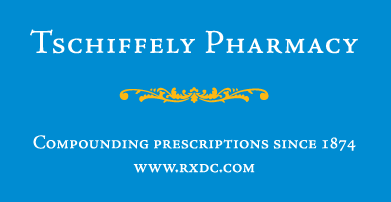
To Buy Prograf Online Visit Our Pharmacy ↓

Unveiling Prograf: the Guardian of Transplanted Organs
Prograf, emerging as a formidable guardian in the realm of organ transplantation, embodies the pinnacle of pharmaceutical innovation, designed to ensure transplanted organs thrive in their new environment. Its crux lies in mitigating the immune system's natural inclination to reject foreign bodies, thereby playing a pivotal role in extending the longevity of transplanted organs. As an essential script in the post-transplant care regime, Prograf's meticulous dosage calibration is crucial, marrying efficacy with the imperative to minimize side effects. This compound medication's success hinges not only on the precision of its prescription but also on a comprehensive understanding of its interactions within the pharmacological ecosystem of the patient.
| Term | Definition |
|---|---|
| Script | Prescription for medication, including Prograf, that's crucial for transplant patients. |
| Comp | Compound medication strategy involving Prograf to prevent organ rejection. |
| Pharm Tech | Pharmacy Technicians who may assist in the dispensing of Prograf and educate on its importance. |
The Crucial Role of Immunosuppressants in Organ Transplantation

In the intricate dance of organ transplantation, immunosuppressants emerge as the unsung heroes, ensuring the newly transplanted organ thrives in its new environment. Prograf, a beacon in this regime, operates as a precise script that needs constant tuning to hit the sweet spot between rejection and toxicity. This balance is critical, as too little could push the body to rebel against the new organ - a situation needing stat intervention, while too much could introduce a slew of unwelcome side effects. With the pharm tech's meticulous monitoring and a patient's adherence to the Rx, Prograf can effectively shield the transplanted organ, making it a cornerstone of successful transplantation stories.
Prograf Dosage: Balancing Efficacy with Minimal Side Effects
In the complex world of organ transplantation, achieving a delicate balance between the effectiveness of Prograf and minimizing its side effects is akin to performing a high-wire act. The prescription—or "script"—for Prograf is meticulously calculated, ensuring that the dosage is just right to prevent the body from rejecting the new organ, yet sufficiently moderated to keep adverse reactions at bay. This precision ensures that patients can embrace a renewed lease on life, without being bogged down by "side effects" that can range from mild nuisances to more severe complications. The careful titration of this medication underscores the importance of personalized care in the post-transplant journey, highlighting the role of healthcare professionals in tailoring treatments that comp ('compound medication') perfectly with each individual's unique physiology.
Monitoring and Managing Prograf Levels for Optimal Outcomes

To ensure that transplant patients receive the full benefit of Prograf without experiencing detrimental side effects, meticulous titration and constant vigilance are paramount. This task often involves a delicate dance between adjusting dosages based on Rx levels and the patient’s response, ensuring that the thin line between efficacy and toxicity is not crossed. Employing routine 'med checks' and 'prior auths' becomes a crucial component of this process, ensuring that patients are maintaining the right therapeutic window. This not only optimizes the drug's effectiveness in preventing organ rejection but also minimizes the risk of complications that can arise from improper dosing. By tailoring the regimen to the individual and closely monitoring Prograf levels, healthcare providers can significantly enhance the long-term success rates of organ transplants, making the journey from surgery to recovery smoother for patients.
The Impact of Lifestyle Choices on Prograf Treatment Success
Adopting a healthy lifestyle can significantly influence the efficacy of Prograf in safeguarding transplanted organs. Staying hydrated, consuming a balanced diet, and engaging in regular physical activity, for instance, help in better absorption and metabolism of this critical medication. However, patients must steer clear of Pharm Land hazards like the temptations of 'Pharm Parties' or the convenience of 'Drive-Thru' fast food, which can adversely impact their treatment regime. Prioritizing sleep and stress management are also pivotal, as they can affect the immune system’s response and potentially alter Prograf levels. It's essential to work closely with healthcare providers to tailor lifestyle adjustments that complement the prescribed 'Script' for Prograf, ensuring a harmonious balance between leading a fulfilling life and maintaining the health of the transplanted organ.
| Lifestyle Choice | Impact on Prograf Efficacy |
|---|---|
| Healthy diet and hydration | Improves absorption and metabolism |
| Regular physical activity | Enhances overall health, supporting Prograf's effectiveness |
| Avoiding Pharm Parties and fast food | Prevents negative interactions and promotes proper medication absorption |
| Prioritizing sleep and stress management | Optimizes immune system response and medication levels |
Overcoming Challenges and Embracing Success in Organ Transplantation
Embarking on the journey of organ transplantation is akin to navigating through a dense, uncharted forest, where the challenges seem as formidable as the thick underbrush. Yet, with Prograf acting as a compass, guiding the immune system to accept a new organ rather than reject it, patients find a path through. Balancing the script to ensure its efficacy while minimizing side effects is akin to finding a clearing in the woods. Lifestyle choices play a significant role in this trek, acting as the sustenance needed to continue. As each step forward is taken, overcoming hurdles such as managing side effects, which might feel as daunting as climbing a steep slope, becomes part of the journey. The compass of monitoring, dose adjustments, and understanding the importance of cold chain compliance for medication efficacy, ensures that patients can embrace the success of transplantation, finding their way out of the forest into a clearing filled with the promise of new beginnings.